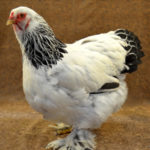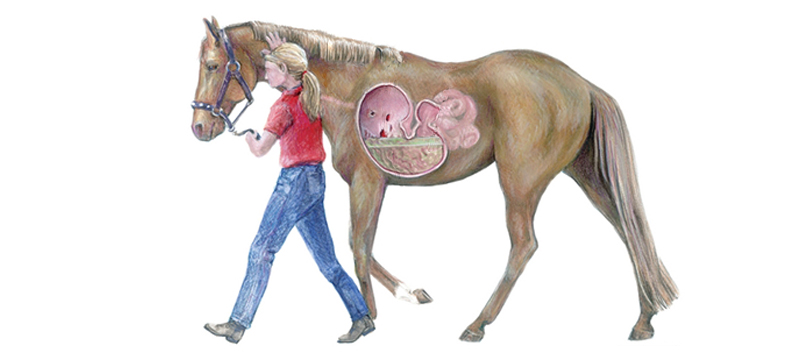










Join us! Our Round Table discussion covers lifting your mood with the help of animals, the Breed of the Show is the Brahma Chicken, in Critter Nutrition we focus on equine gastric ulcer syndrome, and in Coffee Klatch we ask what horse products you use for your dog!
Listen in!
Guests and Links for Episode 95:

- Link to Sound File for Sight Impaired: Click Here
- Breed of the Show: Brahma Chicken
- Co-Hosts: Tigger Montague from BiostarUS and Pati Pierucci from from Pierucci Dressage
- Critter Nutrition Article: Equine Gastric Ulcer Syndrome and Your Horse
- Coffee Klatch: What horse supplements do you use for your dog?
- Ask Hedwig on Facebook
Co-host Tigger Montague describes two parts of the horse stomach that can be affected by equine gastric ulcer syndrome:
“The non-glandular portion of the stomach, the squamous region, is unprotected from gastric acid. Some researchers liken ulcers in the squamous portion in horses to gastroesophageal reflux disease (GERD) in humans. Stomach acids are produced continually in horses, not just when they eat. Squamous ulcers — and equine gastric ulcer syndrome — can appear simply by stomach acid splashing the stomach lining.
Research has demonstrated that excessive exposure of the squamous region to the gastric acid being pushed up by the increased intra-abdominal pressure associated with trotting and cantering and can contribute to the formation of squamous ulcers.
When horses eat or graze, their saliva produces bicarbonate that helps neutralize the acid, thus protecting the squamous region. It is estimated that horses produce 3 gallons of saliva per day.
Racehorses have an increased prevalence, lesion severity, and number of lesion sites within the squamous region, which is associated with the intensity of long-duration training. Likewise, research has shown that the severity of squamous ulcers in endurance horses can be particularly severe related to the distance of the ride.
The glandular portion of the stomach is protected from stomach acid by mucus. However, the glandular portion is affected by stress, dehydration, and diet. High carbohydrate diets can create short-chain fatty acids in the stomach that can erode the stomach lining.
Horses fed grain-based feed produced half as much saliva as horses fed hay and fresh grass….”
At Healthy Critters Radio, we are hopeless animal lovers who want to share our experience and knowledge with you, for the betterment of your animals’ lives. We focus on health, nutrition, behavior, and ideas for overall well-being and happiness. Twice a month, we bring you guest experts, advice, commentary, and a lot of fun and laughter! If there is ever a topic you’d like for us to cover, let us know on our contact page!






